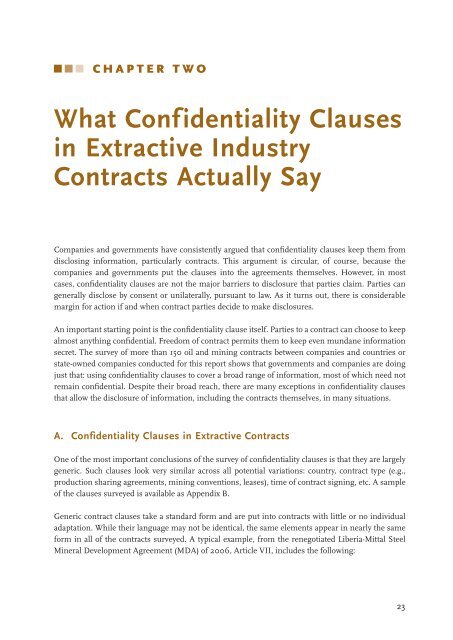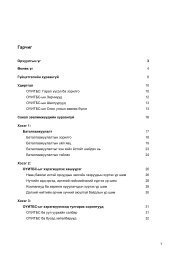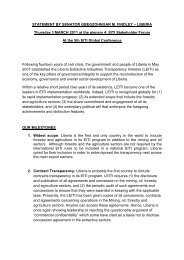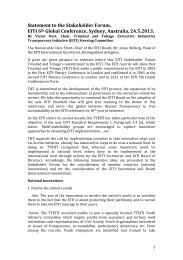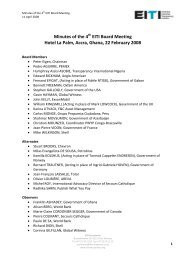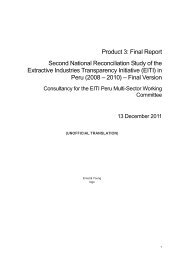CONTRACTS CONFIDENTIAL: - Good Law and Practice
CONTRACTS CONFIDENTIAL: - Good Law and Practice
CONTRACTS CONFIDENTIAL: - Good Law and Practice
Create successful ePaper yourself
Turn your PDF publications into a flip-book with our unique Google optimized e-Paper software.
CHAPTER TWO<br />
What Confidentiality Clauses<br />
in Extractive Industry<br />
Contracts Actually Say<br />
Companies <strong>and</strong> governments have consistently argued that confidentiality clauses keep them from<br />
disclosing information, particularly contracts. This argument is circular, of course, because the<br />
companies <strong>and</strong> governments put the clauses into the agreements themselves. However, in most<br />
cases, confidentiality clauses are not the major barriers to disclosure that parties claim. Parties can<br />
generally disclose by consent or unilaterally, pursuant to law. As it turns out, there is considerable<br />
margin for action if <strong>and</strong> when contract parties decide to make disclosures.<br />
An important starting point is the confidentiality clause itself. Parties to a contract can choose to keep<br />
almost anything confidential. Freedom of contract permits them to keep even mundane information<br />
secret. The survey of more than 150 oil <strong>and</strong> mining contracts between companies <strong>and</strong> countries or<br />
state-owned companies conducted for this report shows that governments <strong>and</strong> companies are doing<br />
just that: using confidentiality clauses to cover a broad range of information, most of which need not<br />
remain confidential. Despite their broad reach, there are many exceptions in confidentiality clauses<br />
that allow the disclosure of information, including the contracts themselves, in many situations.<br />
A. Confidentiality Clauses in Extractive Contracts<br />
One of the most important conclusions of the survey of confidentiality clauses is that they are largely<br />
generic. Such clauses look very similar across all potential variations: country, contract type (e.g.,<br />
production sharing agreements, mining conventions, leases), time of contract signing, etc. A sample<br />
of the clauses surveyed is available as Appendix B.<br />
Generic contract clauses take a st<strong>and</strong>ard form <strong>and</strong> are put into contracts with little or no individual<br />
adaptation. While their language may not be identical, the same elements appear in nearly the same<br />
form in all of the contracts surveyed. A typical example, from the renegotiated Liberia-Mittal Steel<br />
Mineral Development Agreement (MDA) of 2006, Article VII, includes the following:<br />
23


